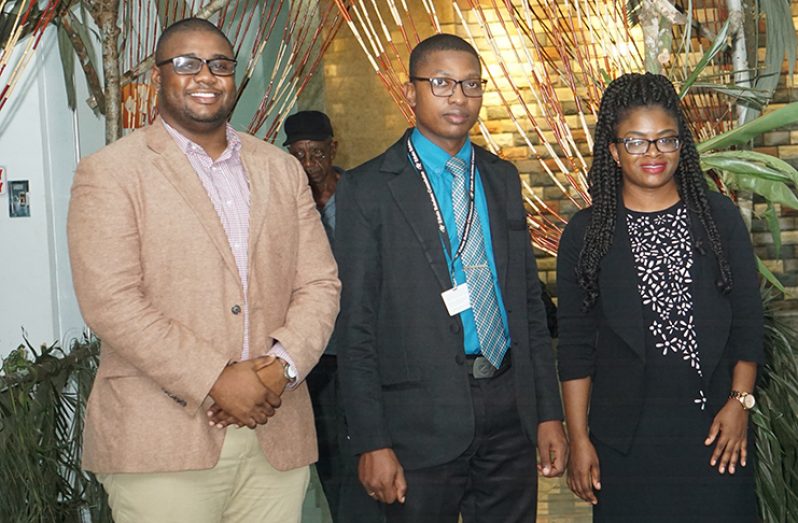By Tamica Garnett
VISITS next week to several Indigenous villages, including Karasabai, Annai, Kamarang, are on the agenda of the Ethnics Relations Commission (ERC), as the body continues its awareness and education campaign across the country.
Plans are also on schedule for further outreaches next month in Karasabai and Kato. Making a presentation on Tuesday at the ongoing National Toshao Council (NTC) Conference, at the Arthur Chung Conference Centre, ERC Head of Public Education and Awareness Unit, Renne Chester, underscored that the involvement and input of the Indigenous People is vital to the work of the ERC.
As such, he said the ERC is doing as much as it can to get the message of the ERC’s function and work to the Indigenous communities. When the ERC visited specific villages, efforts were made to have persons from surrounding villages involved in the outreaches.
“Even though we are in those areas, we go the extra mile to bring persons from other areas. We have paid for persons to come out from all different areas. So we continue our education outreach to engage persons at the grassroot level,” Chester said.
Chester reminded that the ERC has several Indigenous representatives on the commission, who were selected after consultation with various Indigenous groups, including the Amerindian People’s Association (APA) and NTC.
Earlier this year, the ERC visited a number of Indigenous communities during its first tour to all 10 administrative regions. These included Konashen (Gunns), Lethem, Port Kaituma, Mabaruma and Moruca.
Chester noted however that many of the complaints from the villages are not necessarily related to racial discrimination or victimisation.
“Based on our conversations we had with persons, it seems in many of these hinterland areas there’s not so much alarming racial issues, it’s mostly social issues,” Chester related.
As such, Chester explained that the ERC will be looking to partner with other agencies such as the Ministry of Social Protection on its Indigenous village outreaches so those issues that are not a part of the ERC’s mandate, could still be addressed.
Complaints involving Indigenous cases only account for four per cent of the ERC complaints, ERC Senior Investigative Officer, Aiden Sparman, said.
Nonetheless, Chester said much work is still needed to fight discrimination against Indigenous persons, noting a particular case of a picture of an Indigenous mother and her son posted as “Photo of the day” was questioned.
Chester informed that the ERC has been doing its best to tackle racial discrimination on social media, but there are challenges.
“We have a team designated to monitor social media, TV, news. The challenge, of course, is that you have a whole lot of fake accounts being created where we would basically be chasing after a ghost, so instead, we want to engage the reputable news agency. We plan to meet with online news agencies and engage them on being a little more responsible with the things they have happening on their page, or that is being allowed to go on under their posts,” Chester noted.
The ERC is a constitutional body established to promote the elimination of all forms of discrimination on the basis of ethnicity. It was first established in 2002, however, after a seven-year hiatus, it was finally reinstituted in 2018.
The ERC has 55 current cases of which 64 per cent have been closed; 22 per cent are still being actively investigated while 22 per cent are awaiting action by the ERC sub-committee.
Of the complaints received by the ERC, a majority involve racial discrimination at the workplace. Followed by this are complaints of religious discrimination and economic marginalisation.
ERC Legal adviser, Kimbely Yearwood did a presentation on the powers given to the ERC in the law and what the law says about racial discrimination and incitement.




.png)









